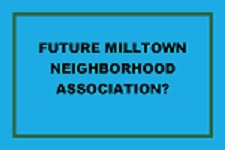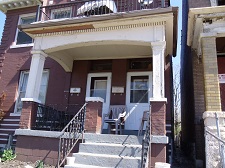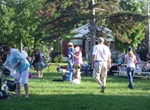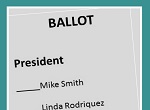How to Start a Neighborhood Association: First Steps
Last Updated: June 26, 2025
We begin with this. I have direct experience in starting neighborhood associations, in various regions of the U.S. too. The upshot is that every single instance is different. The four of us who originally wrote for the predecessor website discussed this as some length, so I have taken their experiences into account in preparing general advice for you.
Neighborhoods have different histories and cultures, and perhaps even more importantly, neighborhood organizing usually begins with some strong personalities. Maybe that's you. Read what we say in this three-part article; links to the following two pages will be in the photo links at the bottom of the page. Adjust your course frequently as you begin to get some feedback about what works and what doesn't work.
Usually the desire to start a neighborhood association comes up when someone wants to socialize more with their neighbors or when there are problems that are beyond the capacity of one household or block to resolve. In community organizing, we say that a problem is a broad area of concern, while an issue is built around a solution or partial solution to a problem. On this page we use the "first issue" term because we hope you turn a problem into an issue as soon as possible.

As a simple example, I worked with a neighborhood where the problem was that they did not want to have an apartment complex built on a large vacant property behind their subdivision. These upwardly mobile middle-class people were afraid that apartments nearby would decrease their property values, but most of all they were afraid of an unspoken people element. One actually said in a public meeting, "You know what kind of people live in apartments." As a planning staff member, I could only reply that I thought people might live in apartments for several different reasons. But at the same time, I recognized that the rezoning application was their problem, and that they could turn it into an issue that would lead to a worthwhile neighborhood association if they chose to do so.
While you can sometimes bring together one great meeting around discussion of a problem, if you want to organize people on a more permanent basis by forming a neighborhood group, you need to turn it into an issue. The danger of sticking with discussing a problem is that eventually your potential organization could degenerate into just a gripe session. Many families and individuals simply don't have the time or energy for attending meetings where complaining is the only item on the agenda.
Make no mistake about it: we think your first issue should be tightly focused. Even if you live in a neighborhood that has been trashed by poverty, crime, drugs, abandonment, and disinvestment, wrap that into one issue name that represents part of the solution to your multi-faceted problem, and stay with it.
By the way, if you have already held a neighborhood meeting or two, you probably should stay here to read about first steps, but if that feels too elementary, another page deals with neighborhood associations that are already functioning or well into the formation process. If you are trying to renew a dormant organization, see also our answer to a website visitor question about that process.
Do You Need to Start a Neighborhood Association?
It takes plenty of energy to start a neighborhood association, so be sure you really need and want to do it. Below we suggest some key questions to determine whether neighborhood associations would be likely to succeed.
• How many people are affected by the first issue?
• Are these people resident property owners, renters, business owners, business customers, or institutional stakeholders such as non-profit or faith-based groups?
• How motivated are these different groups to help solve the immediate problem or problems to which your group is reacting?
• If many residents are transient, meaning people don't stay in your community very long (more than 20% turnover a year, for example, is significant), how much effort can you expect from those folks?
• If renters or even fast-turnover homeowners or condo owners form a large component of the population, are there any special circumstances that would make them likely to help? (Examples might be that the first issue affects them more than it affects long-term residents, or perhaps the "transients" are college students at an institution with an appetite for activism.)
• How passionate about your first issue are those who are likely to help?
• Are you, or someone you know and can identify right now, able to give the new organization the time and leadership effort it will require?
• Are you certain that no existing organization can be redirected or revived to tackle your first problem? Even if you have your doubts about an existing organization's strength, understand that if you start a neighborhood association, the result is both work intensive and potentially divisive if there is an existing organization that might be reshaped.
Estimating the time and effort that will be required is a key factor in whether your project to start a neighborhood association or another type of community organization will be time well spent. Here are some factors you should consider.
• Are the people you are working with "joiners"? Do they readily belong to interest-based clubs, faith-based organizations, political groups, civic groups, sports leagues, fraternities, or organized social activities? If so, your job will be easier than if they "pretty much stay to themselves."
• Do neighbors have at least a passing acquaintance with each other already? If not, the first activity needs to include a getting acquainted component.
• Is there trust in the community, which will make your job will be easier, or is the community divided into factions or riddled with crimes that make people suspicious of one another?
• Is the "first issue" compelling? In other words, regular gunfire seems more important and feels more emotional than noise from boom boxes.
• Is the "first issue" something that people will be at least slightly optimistic about winning? People often feel totally helpless to stop regular gunfire if that activity is gang-related or drug-related, as seems likely. So they may be too cynical or too fearful of becoming involved to help you start a neighborhood association, even though the issue is enormously compelling.
• Is there a history of failed attempts to start a neighborhood association, whether temporary or permanent? If there have been four fizzles in the last five years, your chances of success are low. This does not mean you shouldn't try, but just be aware that you must begin every conversation with differentiating yourselves from previous efforts.
• Is there enough discontent to inspire loyalty to an organization? In suburban settings that are idyllic, except for one or two issues, people might be simply too content and too busy to devote energy to resolving one or two problems that seem minor or too difficult to solve.
• Is there a natural, comfortable, and neutral meeting place? If so, it will be easier to convince people to attend meetings.
• Do you think people in your neighborhood will show up to in-person meetings? During the worst of the Covid-19 pandemic, many new people joined the culture of online meetings, and getting people out of that rut seems difficult for many communities. But we urge face to face communication and interaction whenever possible. It just provides many times richer social cues.
The We Rise organization has provided a useful tool for groups to use in choosing an issue, if you need more assistance or a ready-to-go template for a meeting.
When There Are Multiple Neighborhood Associations
What happens if the new group you want to set up creates rival neighborhood associations? Perhaps the existing organization is stale and boring, and you long for action. Or previous neighborhood associations have burned their bridges with City Hall, and you feel they will never be effective.
Try not to start a neighborhood association with the same neighborhood boundaries as an existing organization simply because you are a personal or political foe of the leader of the other organization. Think of your community first. But a new organization is preferable to an ineffective or toxic one. If you try your best to work within the existing organization and cannot do so, then you may need to begin something new.
Also consider the possibility that you may have some active block units (or block clubs) within your proposed boundaries. Be sure to approach them early and often so that they don't feel threatened. Continuing the block units as part of the neighborhood organization is not only possible, but also highly desirable, providing they can be persuaded to abandon their own customs and opinions if and when they conflict with the decisions of the new neighborhood association.
To continue with the rest of this three-part article, click the link below for setting up the first few meetings of the association and then the one about how to set up the organizational structure. Another option is to purchase our inexpensive ebook, which pulls together information from different parts of our website and adds sample materials not available online. Also at some point remember to look at the general page for neighborhood associations, which contains essential information for you when you decide to proceed.
Be sure to Read the Next Two Pages In the Series, Plus More Possible Articles of Interest
- Making and Keeping a Good Community >
- Community Organizations > Start a Neighborhood Association
Join GOOD COMMUNITY PLUS, which provides you monthly with short features or tips about timely topics for neighborhoods, towns and cities, community organizations, and rural or small town environments. Unsubscribe any time. Give it a try.




